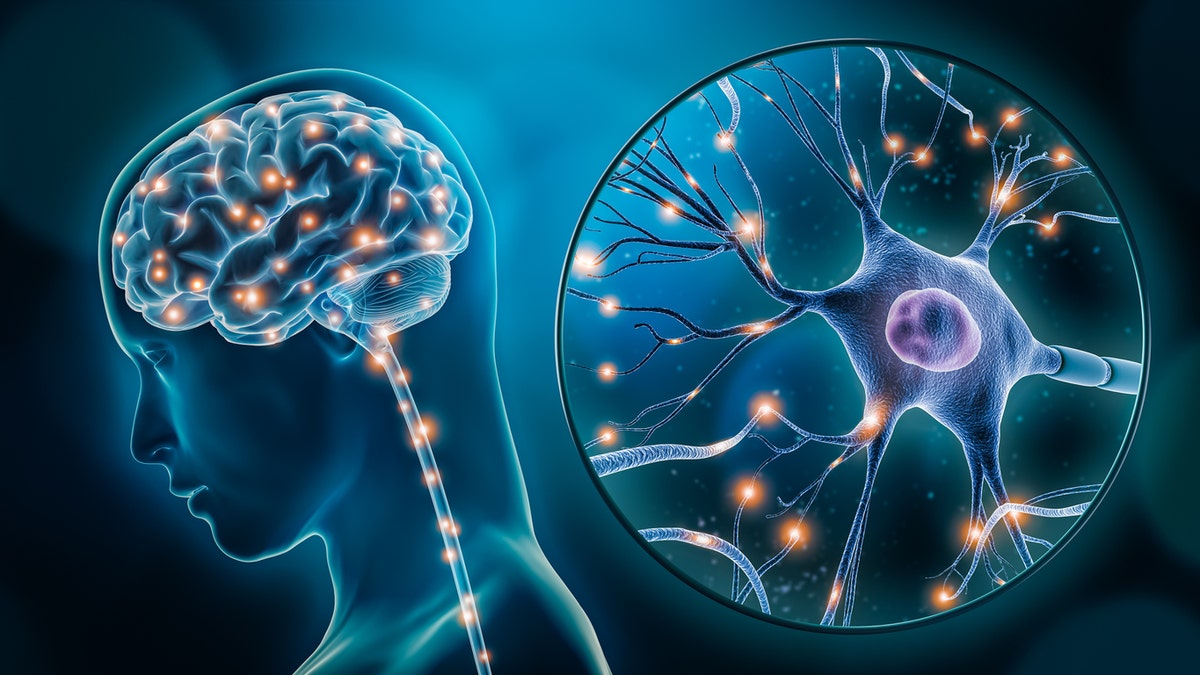
As Alzheimer’s disease is the most common form of dementia — affecting an estimated 6.7 million Americans — it’s not surprising that people who experience memory loss may suspect AD.
In fact, there is another common cognitive disorder with very similar symptoms, called limbic-predominant age-related TDP-43 encephalopathy — or LATE for short — that is often misdiagnosed as Alzheimer’s.
A recent report published in Alzheimer’s & Dementia: The Journal of the Alzheimer’s Association highlights the need to develop « objective criteria » for diagnosing and staging all types of dementia, including LATE.
5 MAJOR ALZHEIMER’S DISCOVERIES SCIENTISTS MADE IN 2024
How is LATE different from Alzheimer’s?
LATE is a prevalent condition in late life and can contribute to memory loss and cognitive decline, according to report co-author Rebecca M. Edelmayer, Ph.D., Alzheimer’s Association vice president of scientific engagement in Chicago.

« LATE is defined by changes in the TDP-43 protein in brain tissue and frequently co-exists with Alzheimer’s disease changes, such as buildup of beta amyloid plaques and tau tangles. » (iStock)
« LATE is defined by changes in the TDP-43 protein in brain tissue and frequently co-exists with Alzheimer’s disease changes, such as buildup of beta amyloid plaques and tau tangles, » she told Fox News Digital.
The newly proposed criteria aim to help clinicians better differentiate LATE from Alzheimer’s, ultimately leading to more precise diagnoses and improved treatment strategies, Edelmayer noted.
NEW ALZHEIMER’S RESEARCH REVEALS ‘QUIET’ PHASE OF THE DISEASE, BEFORE SYMPTOMS APPEAR
LATE tends to have a slower rate of decline than Alzheimer’s, according to lead author David Wolk, professor of neurology at the University of Pennsylvania.
The condition occurs in tandem with Alzheimer’s disease in about one-third of patients, the doctor estimated, and it seems to accelerate the course of disease.
More than 25% of people over 80 have this form of dementia.

More than 25% of people over 80 have this common but little-known form of dementia. (iStock)
« Despite the commonality of the condition, most clinicians and patients have never heard of LATE and don’t consider this when memory loss is present, » Wolk noted.
« Knowing whether it is present with Alzheimer’s disease also impacts prognosis and may impact the efficacy of treatments. »
« Most clinicians and patients have never heard of LATE and don’t consider this when memory loss is present. »
Before the criteria presented in the new report, there was not consensus on how to diagnose this condition.
« It was only defined at autopsy after death, » Wolk said.
CLICK HERE TO GET THE FOX NEWS APP
« These criteria provide a way for doctors to diagnose the disease, which is an important step both in clinical practice and ultimately research to better treat the condition. »
While there is a diagnostic test to definitively measure Alzheimer’s disease, no such test exists for LATE, Wolk pointed out.

While there is a diagnostic test to definitively measure Alzheimer’s disease, no such test exists for LATE. (iStock)
« The criteria provide levels of likelihood of diagnosis, but cannot be definitive, » he told Fox News Digital. « Also, the criteria need to be validated in practice. »
In the near future, Edelmayer noted, advances in biological markers will help clinicians differentiate all the various types of dementia.
CLICK HERE TO SIGN UP FOR OUR HEALTH NEWSLETTER
« Until those tools are available, clinical criteria for diagnosis — like the one we just published — can be used to support a more personalized medicine approach to treatment, care and enrollment into clinical studies, » she told Fox News Digital.
For more Health articles, visit www.foxnews.com/health
« In addition, these new recommendations create a roadmap that identifies opportunities for further research, and the challenges that still remain for accurately diagnosing individuals with LATE. »
